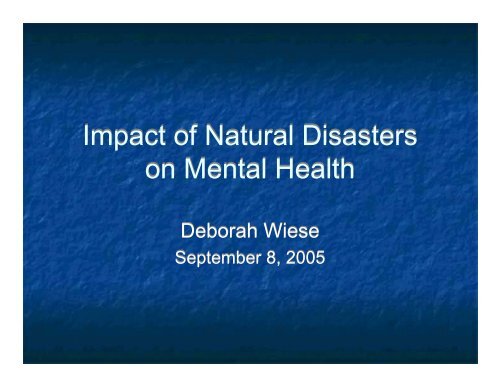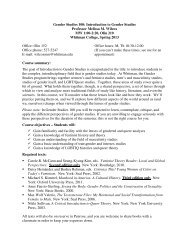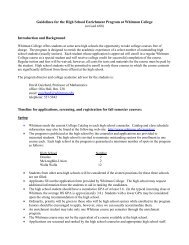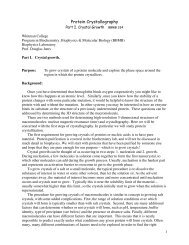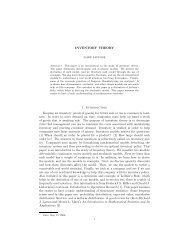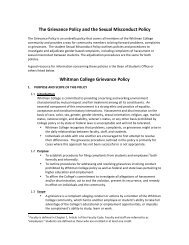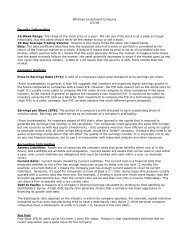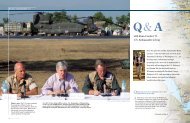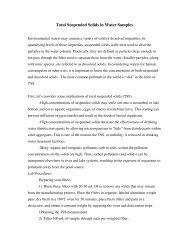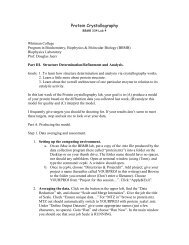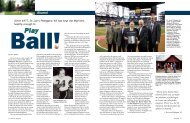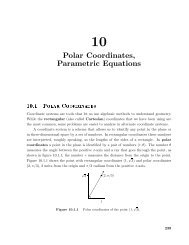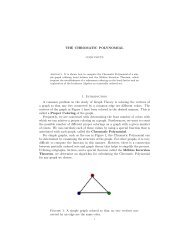Slides
Slides
Slides
Create successful ePaper yourself
Turn your PDF publications into a flip-book with our unique Google optimized e-Paper software.
Impact of Natural Disasters<br />
on Mental Health<br />
Deborah Wiese<br />
September 8, 2005
Common Reactions to Trauma<br />
Common Reactions to Trauma<br />
• Immediate<br />
• shock, numbness, feeling disconnected from<br />
self/life, denial<br />
• Subsequent<br />
• intense/unpredictable emotions<br />
• heightened arousal<br />
• cognitive impairment<br />
• re-experiencing trauma<br />
• interpersonal problems<br />
• physical symptoms
Factors in Emotional Health<br />
Factors in Emotional Health<br />
• quality of help<br />
• adequate<br />
• equitable<br />
• sustained<br />
• perceptions of social support<br />
• personal factors<br />
• perceptions of ability to cope<br />
• perceptions of control<br />
• self-esteem, hope, optimism<br />
• natural support systems (family/friends)<br />
Norris (NCPTSD)
Risk Factors<br />
Risk Factors<br />
• extremity of environmental destruction<br />
• increased loss = higher distress<br />
• loss of family/friends<br />
• injury or life threat<br />
• relocation/displacement<br />
• loss of home/possessions<br />
• exposure to traumas in past<br />
• preexisting medical/psychological illness<br />
• chronic poverty, homelessness, unemployment,<br />
discrimination<br />
• recent/subsequent life stressors<br />
• e.g., single parenting, loss of job<br />
APA & NCPTSD
• clinginess<br />
• dependence<br />
Reactions of Children<br />
Reactions of Children<br />
• refusing to sleep alone<br />
• temper tantrums<br />
• aggressive behavior<br />
• incontinence<br />
• hyperactivity<br />
• separation anxiety<br />
review of 23 studies of children experiencing disasters (Norris, 2005)
Helping Children Cope<br />
Helping Children Cope<br />
• spend more time with them<br />
• reassure them about safety concerns<br />
• allow them to be more dependent<br />
• allow opportunities for them to talk and ask<br />
questions<br />
• provide opportunities for play<br />
• maintain or establish regular routines<br />
• limit television and other visual reminders<br />
Recommendations from APA & NCPTSD
Helpful Websites<br />
Helpful Websites<br />
• American Psychological Association<br />
• http://www.apa.org/topics/topicdisasters.html<br />
• http://www.apahelpcenter.org/<br />
• Natl. Center for Post-Traumatic Stress<br />
Disorder (Department of Veterans Affairs)<br />
• http://www.ncptsd.va.gov/facts/disasters/
Self-Care<br />
• find support (family, friends, community group)<br />
• maintain routines<br />
• take a break from news<br />
• be gentle with self - acknowledge feelings<br />
• find opportunities to help others<br />
• focus on the present<br />
• establish healthy habits - sleep, eat, exercise<br />
• engage in activities that make you feel better<br />
• avoid major life decisions
Most Common Problems<br />
Most Common Problems<br />
• Post Traumatic Stress Disorder<br />
• Depression<br />
• Non-Specified Stress<br />
• Somatic Concerns<br />
• General Anxiety<br />
review of 225 studies on disaster victims (Norris, 2005)
Percentage of Samples Showing<br />
Mental Health Concerns (Norris, 2005)<br />
80<br />
70<br />
60<br />
50<br />
40<br />
30<br />
20<br />
10<br />
0<br />
PTSD PTSD<br />
Depression<br />
Depression<br />
Stress Stress<br />
Somatic Somatic Concerns Concerns<br />
Anxiety Anxiety


